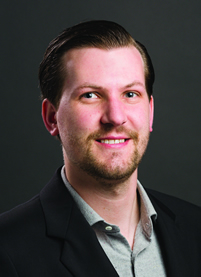The microbiome continues to be one of the hottest areas of research in rheumatology. Improvements in DNA sequencing technologies allow researchers to go far beyond the blind use of fecal transplants to treat infection. Researchers are beginning to link individual gut species with specific immune and autoimmune diseases and consider therapeutic interventions.

Noah Wolcott Palm, PhD, Assistant Professor of Immunobiology and a member of the Human and Translational Immunology Program at Yale University School of Medicine, said that a large amount of microbiota-profiling data has been accumulated in the six years that microbiome sessions have been held at the Annual Meeting.
“This comes down to the development and expansion of affordable next-generation sequencing technology,” he said. “You can now easily and cheaply perform targeted sequencing to determine which microbes are in each of our guts, as well as shotgun metagenomic sequencing to identify all of the genes encoded by these bugs. More recently, we and others have begun to develop new experimental systems to make causal connections between specific kinds of changes in the microbiota and the development of specific disorders.”
Dr. Palm will open a basic science symposium on Autoimmunity and the Microbiome from 4:30 – 6:00 pm Sunday in room 151A. Technology limitations meant that symposia in earlier years focused largely on comparing the microbiota from healthy and sick individuals. Advances in sequencing, anaerobic cell culture techniques, and germ-free mouse models shift the focus to experiments to determine whether specific changes in the microbiota are responsible for increasing autoimmunity or simply side effects of the disease itself.
“Determining what in fecal transplants confers the therapeutic effect is the kind of study we can do now that was difficult to impossible to do just a few years ago” Dr. Palm said. “One study out of Sloan Kettering in New York City did exactly that and pinned down one particular organism that was sufficient to confer resistance to C. difficile in mouse models. That’s the kind of direction the whole field is moving in.”
The microbiome has profound effects on a variety of autoimmune diseases, from type 1 diabetes and multiple sclerosis to rheumatoid arthritis and lupus. Outside rheumatology, very good data shows specific gut microbes and mechanisms driving and inhibiting disease. Recent work has identified a single microbe isolated from a patient with ulcerative colitis that causes the disease in a germ-free mouse model.
The data are weaker in rheumatologic diseases. Studies have associated Prevotella copri to early stage rheumatoid arthritis. More recent data from Japan show a mechanistic role for P. copri in the development of RA.

“That causal link was missing,” said Martin A. Kriegel, MD, PhD, Assistant Professor of Immunobiology and Medicine/Rheumatology at the Yale School of Medicine. “These findings thicken the plot around the role this bug may play in RA.”
The precise mechanisms by which gut bacteria trigger autoimmune responses remain largely undefined. One potential mechanism is microbial orthologues, microbial proteins that are similar to human antigens yet expressed in foreign commensal bacteria that trigger an immune response. In some individuals, the immune response may not be able to distinguish between orthologue and self, activating a pathogenic autoimmune response.
In lupus, as a paradigm, the autoantigen Ro60 plays a major role. Dr. Kriegel’s lab has identified a set of microbes that carry an orthologue to Ro60 and could play a role in the development of lupus. When these microbes colonize germ-free animals, they induce autoreactivity to human Ro60. Eliminating or neutralizing those specific microbes in susceptible individuals could help block the development of lupus.
“Just as changing the microbiota can cure severe recurrent C. diff infections, we could envision similar strategies for some autoimmune disease,” Dr. Kriegel said. “But we are still at the stage of finding the culprits behind rheumatologic diseases that are truly involved with pathogenesis. Once we have identified those so-called pathobionts, we can design therapies to either give back a more healthy microbiota that displaces the bad bugs or target the pathobionts directly, either using antibiotics or vaccines against specific candidate bacteria.”
BASIC SCIENCE TRACK
Autoimmunity and the Microbiome
4:30 – 6:00 pm Sunday • Room 151A
